Former UNRWA boss hopeful for formal UN exoneration
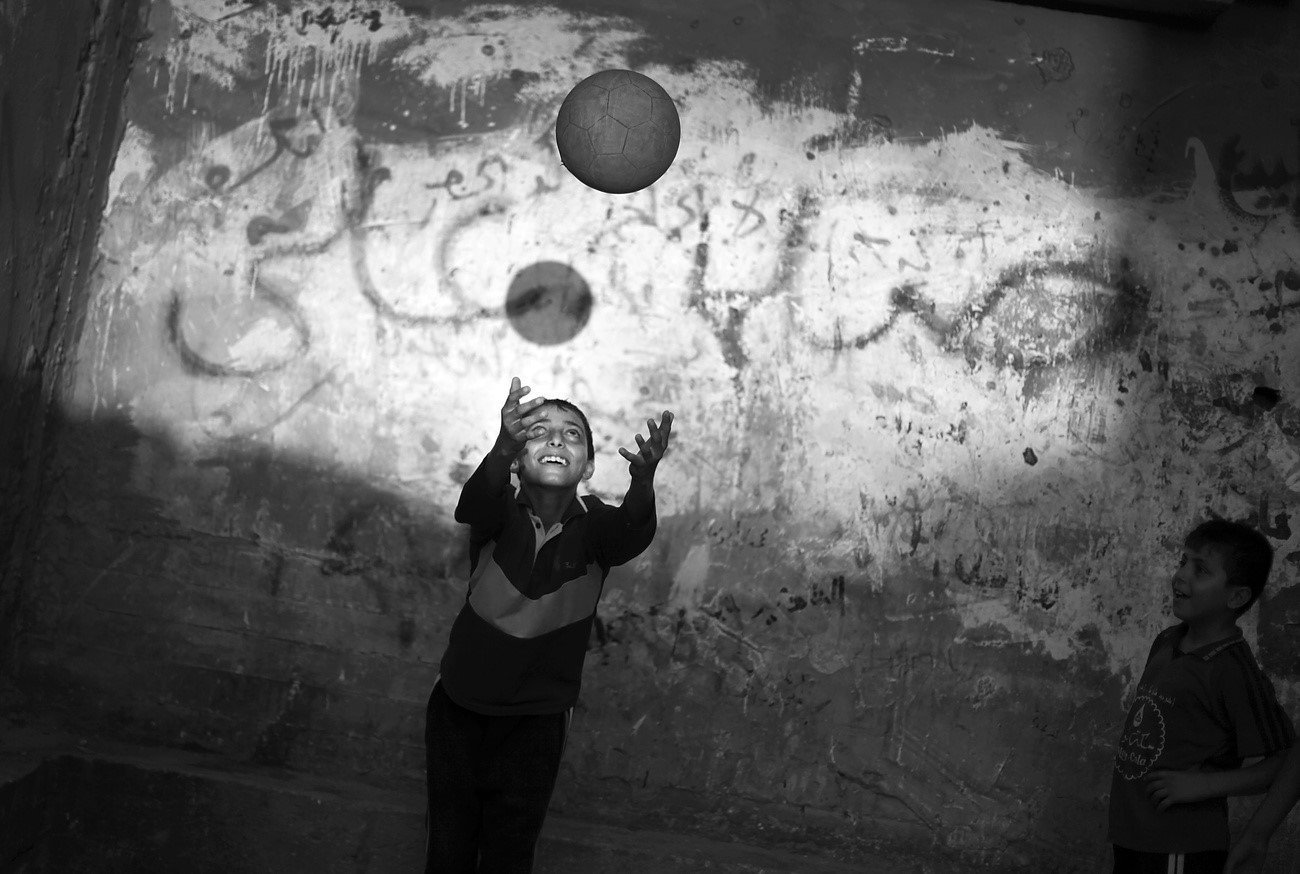
The former Swiss boss of the UN agency for Palestinian refugees, Pierre Krähenbühl, tells SWI swissinfo.ch why he soon expects positive closure on the 2019 misconduct scandal that led to his resignation.
Pierre Krähenbühl was appointed commissioner general of the UN Relief and Works Agency for Palestine Refugees (UNRWA) in November 2013. At the time he was one of the most senior Swiss officials in the UN system. But he was also one of the most exposed politically, overseeing an agency that provides support to almost six million Palestinian refugees.
Created by the UN in 1949 after the first Arab-Israeli war, the United Nations Relief and Works Agency for Palestine Refugees in the Near East (UNRWA) today assists 5.8 million Palestinian refugees in Lebanon, Syria, Jordan and the Palestinian territories of Gaza and the West Bank.
The agency runs 711 schools that today take more than half a million children. It manages 144 health centres visited by 3.6 million Palestinian refugees. UNRWA also provides some 270,000 refugees with support in the form of food and targeted financial aid.
Krähenbühl’s troubles began after the arrival of Donald Trump at the White House. In 2018 the United States, its biggest donor, halted annual aid of more than $300 million (CHF272 million). Krähenbühl and his team raised the missing funds thanks to additional support from 40 countries.
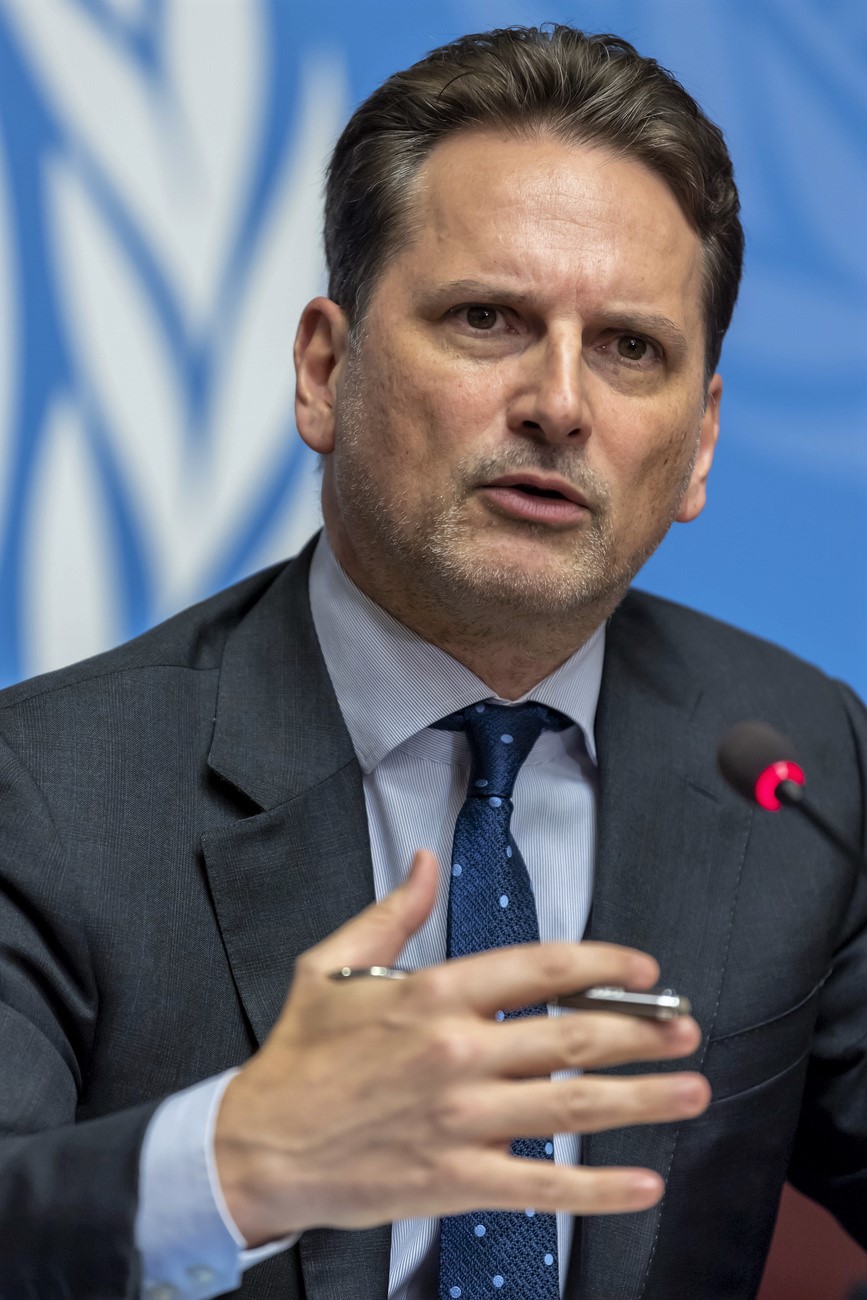
In 2019, the Swiss national found himself in the international headlines after becoming embroiled in a scandal involving accusations of nepotism, abuses of authority and having an affair with an employee. A UN enquiry was launched. In November 2019, Krähenbühl resigned amid widespread coverage of the scandal just hours after he had agreed to step temporarily aside earlier. He has always strongly denied allegations of impropriety.
In December 2020, a Swiss public TV documentary revealed extracts of the unpublished final UN report into the affair. The Temps Présent programme claims the UN investigation into Krähenbühl’s management identified only ‘minor shortcomings’External link. The official report has never been made public.
SWI swissinfo.ch: Was the smear campaign you were a victim of somehow linked to your success in overcoming UNRWA’s financial crisis caused by the US pulling the plug on their aid?
Pierre Krähenbühl: It’s partly due to that. I don’t have any proof to show a link between the political and financial attacks and the initial report of complaints from inside UNRWA. But as soon as that (internal incriminating) report was leaked to the press in summer 2019, it was instrumentalised politically. It went from financial attacks in 2018 to political and personal attacks in 2019. I am convinced people didn’t forgive me or UNRWA for having surmounted that financial crisis.
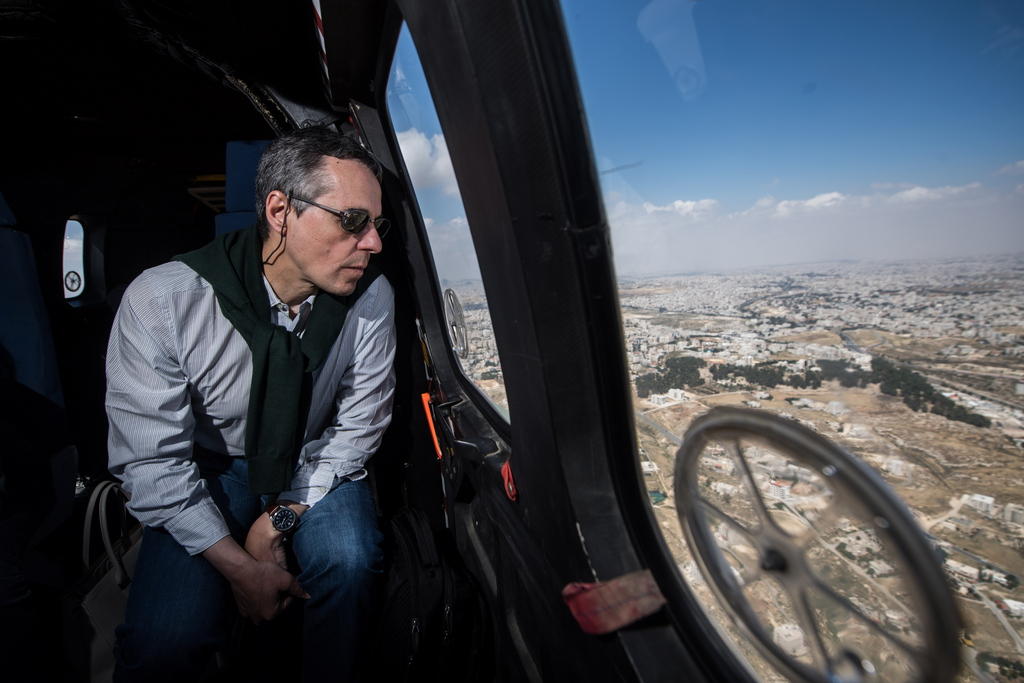
More
Minister: ‘UN aid agency is part of the problem in the Middle East’
During his visit to an UNRWA camp in Jordan in 2018, did Ignazio Cassis at any time raise concerns that, as he told journalists afterwards, the agency had become “part of the problem” in the Middle East rather than the solution?
P.K.: We knew that Cassis had a different appreciation of the Israeli-Palestine conflict to previous Swiss foreign ministers. This change of attitude is not unusual among Europeans.
The Swiss delegation and the UNRWA team had the feeling that it was a good visit. During our one-on-one meetings, the minister asked me lots of questions and showed real interest. We were therefore very surprised to read the phrase he used in the interview on his return to Switzerland as he hadn’t mentioned this issue during our talks. Several ministers told me that his words, viewed as a change of direction by Switzerland, created surprise in the Middle East where people are used to long-standing positions on the conflict.
The fact that the Swiss government later clarified Switzerland’s position following Cassis’ remarks allowed me to stress the continuity of Switzerland’s policy towards the Middle East and its support to UNRWA.
How has the overall situation evolved since last December when Swiss public TV revealed extracts of the final UN report, which partly exonerated you?
P.K.: What’s changed is the overall perception of the events in 2018 and 2019. The Temps Présent programme contributed hugely towards clarifying the crisis period, the context and the UN enquiry. It also resulted in a large number of reactions from the press and the general public.
What’s more, Bern now supports a call for the UN in New York to clarify and close the whole affair. I warmly welcome Bern’s efforts to seek an attainable objective: a final letter from the UN secretary general [António Guterres] regarding this whole process that mentions the enquiry’s conclusions in which they say that nothing important was found from the multiple, serious accusations made against me. It’s not for Switzerland to be the first to do this, but the UN.
The Secretary General called me in November 2019 to let me know that the charges of corruption, fraud, mismanagement and of romantic relations with a female member of staff had all been dropped. That was the most important thing. But, saying that, errors are inevitable when you manage that kind of agency, which is under huge pressure and employs 30,000 people.
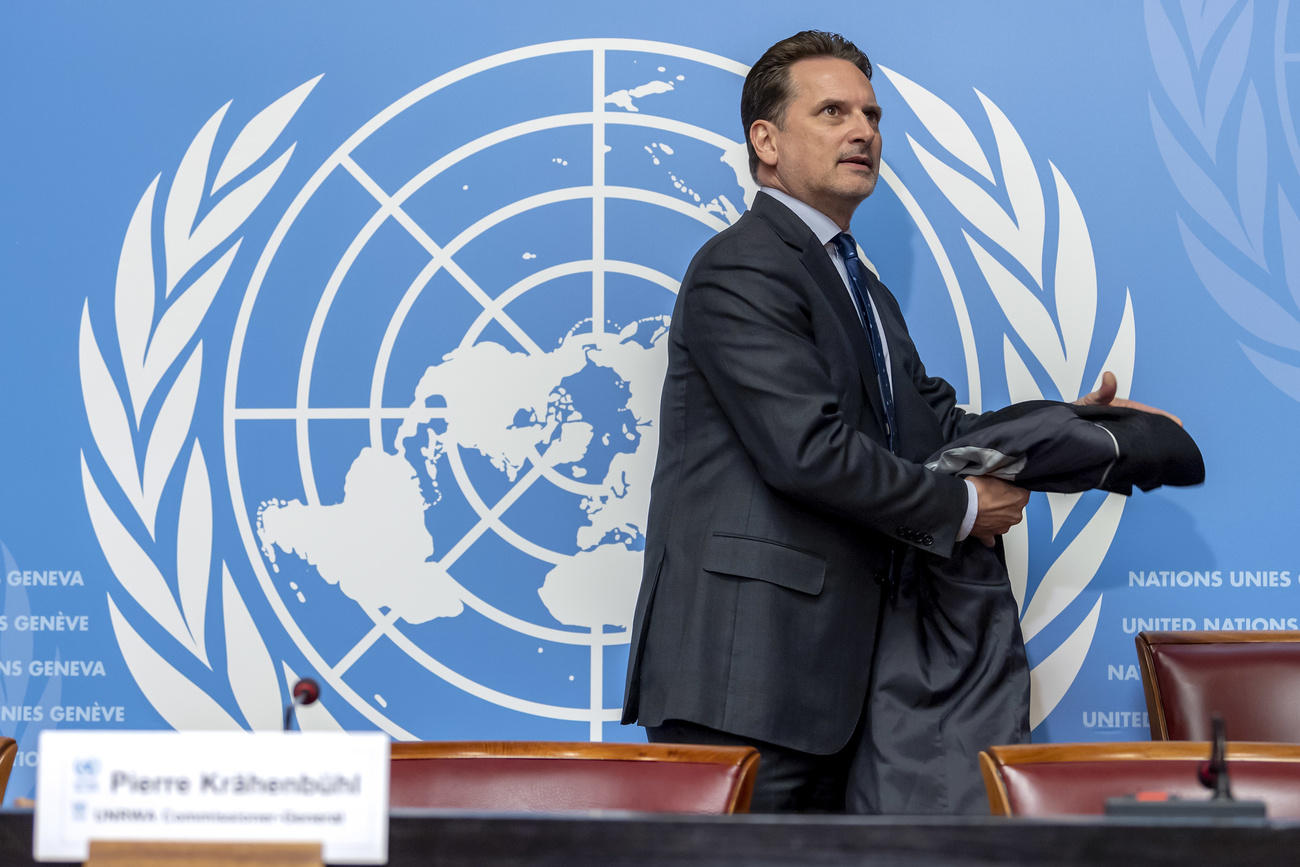
More
Departing UNRWA head claims he is ‘victim of dirty politics’
Will the transition from Donald Trump to Joe Biden have a significant impact on the Middle East and UNRWA?
P.K.: I hope so. The US has been UNRWA’s biggest donor for 65 years. Part of Washington’s long-term commitment is due to its support for Palestinian refugees and for Israel. The US has been both very generous and occasionally critical of UNRWA’s work. Some people in Switzerland didn’t fully understand this ambiguity. That’s the tight-rope policy the Trump administration tried to break, by moving the US embassy to Jerusalem and by ending its funding of UNRWA. The agency found itself in an existential crisis. We decided not to give in to that kind of diktat; we managed to mobilise over 40 countries who increased their funding to UNRWA.
The new Biden administration has already announced its willingness to re-engage with UNRWA. It will be the renewal of a long-running partnership.
You were the first UNRWA commissioner general – like your American deputy – not to come from the diplomatic world. Was this not problematic for such an exposed high-profile job?
P.K.: When I presented my application in 2013, Switzerland could have simply taken note. But it decided to officially support it with a letter from Swiss President Ueli Maurer to UN Secretary General Ban Ki-moon. The Swiss diplomatic machine was coordinated and promoted my application to other states.
That’s when I discovered what it means to have the support of your country. The application of my deputy, Sandra Mitchell, also received similar support from her country [the US]. Though we both came from humanitarian organisations, the support from our two countries was very strong. Ban Ki-moon’s main concern during the recruitment process was to know if I had the right skills to mobilise donors and raise funds. That was UNRWA’s Achilles heel; we had to find a way of guaranteeing the agency’s financial stability.
The Trump administration created a breach in American foreign policy as part of its hostile policy towards the multilateral system. This is what French President Emmanuel Macron told me back in 2018.
What is UNRWA’s most important long-term programme?
P.K.: UNRWA does an essential job in providing primary healthcare via a network of over 140 clinics, as well as food and cash distributions that allow people who have fallen into poverty to survive.
But what impressed me most is the agency’s education work. It’s not something I was familiar with during my 22 years at the International Committee of the Red Cross (ICRC).
The teaching and professional training offered by UNRWA is extraordinary. Everywhere I travelled for conferences – Australia, Sweden, Switzerland – people would come up to me to tell me they had studied at an UNRWA school and that they had been successful professionally. Palestinian refugees from the region say that they can do without many things but not their education.
It’s essential for the region that this education system is protected. Imagine what would happen to the 280,000 UNRWA students in the Gaza Strip if their schools had to close. The alternative for them would be schools managed by Hamas. These are the kinds of questions governments have to ask themselves when they are thinking of reducing UNRWA’s ability to work.
This quality education may be criticised and can be improved. But it represents a vital contribution for refugees. Almost 2.5 million Palestinians have been educated in UNRWA schools since the 1950s.
Translated from French by Simon Bradley
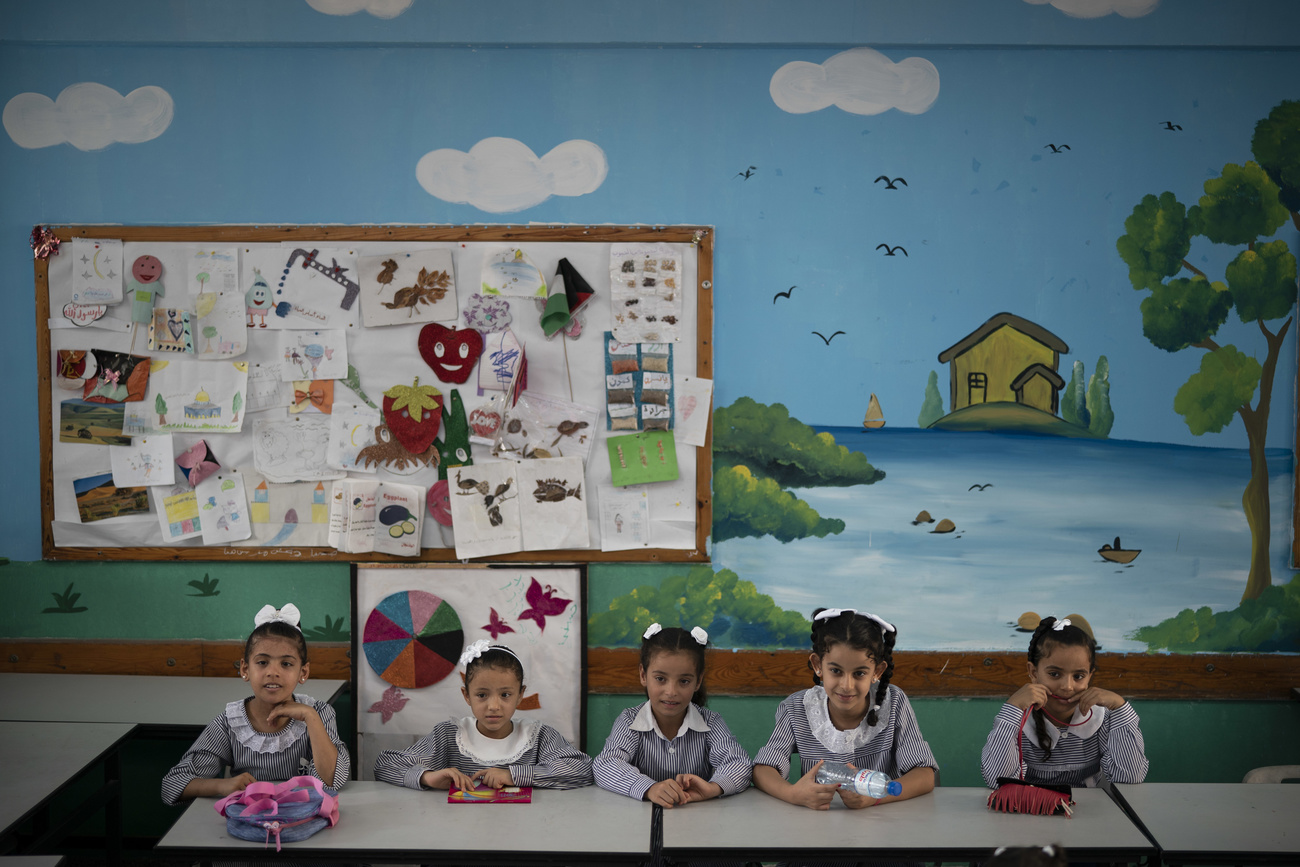
More
Swiss fund Palestinian refugee agency but with reservations

In compliance with the JTI standards
More: SWI swissinfo.ch certified by the Journalism Trust Initiative

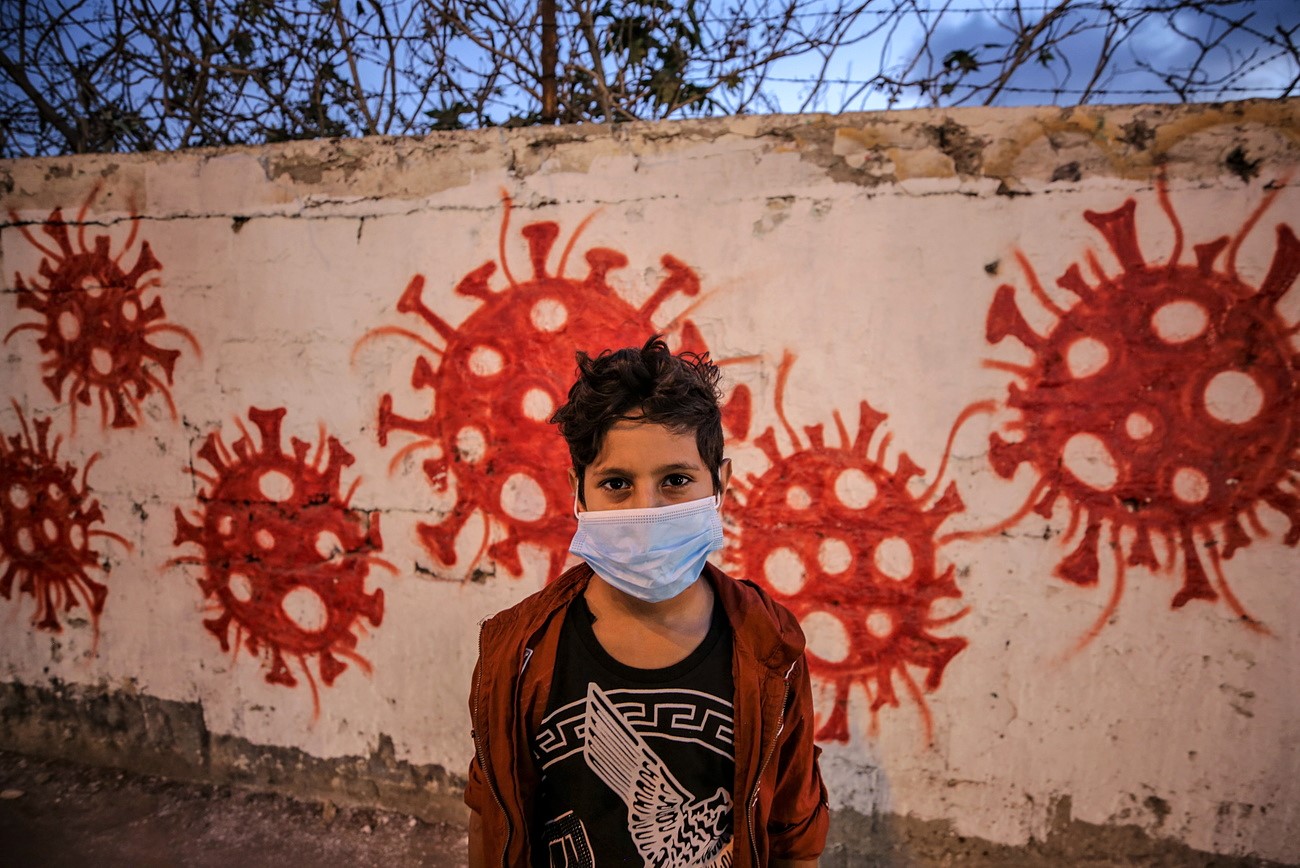
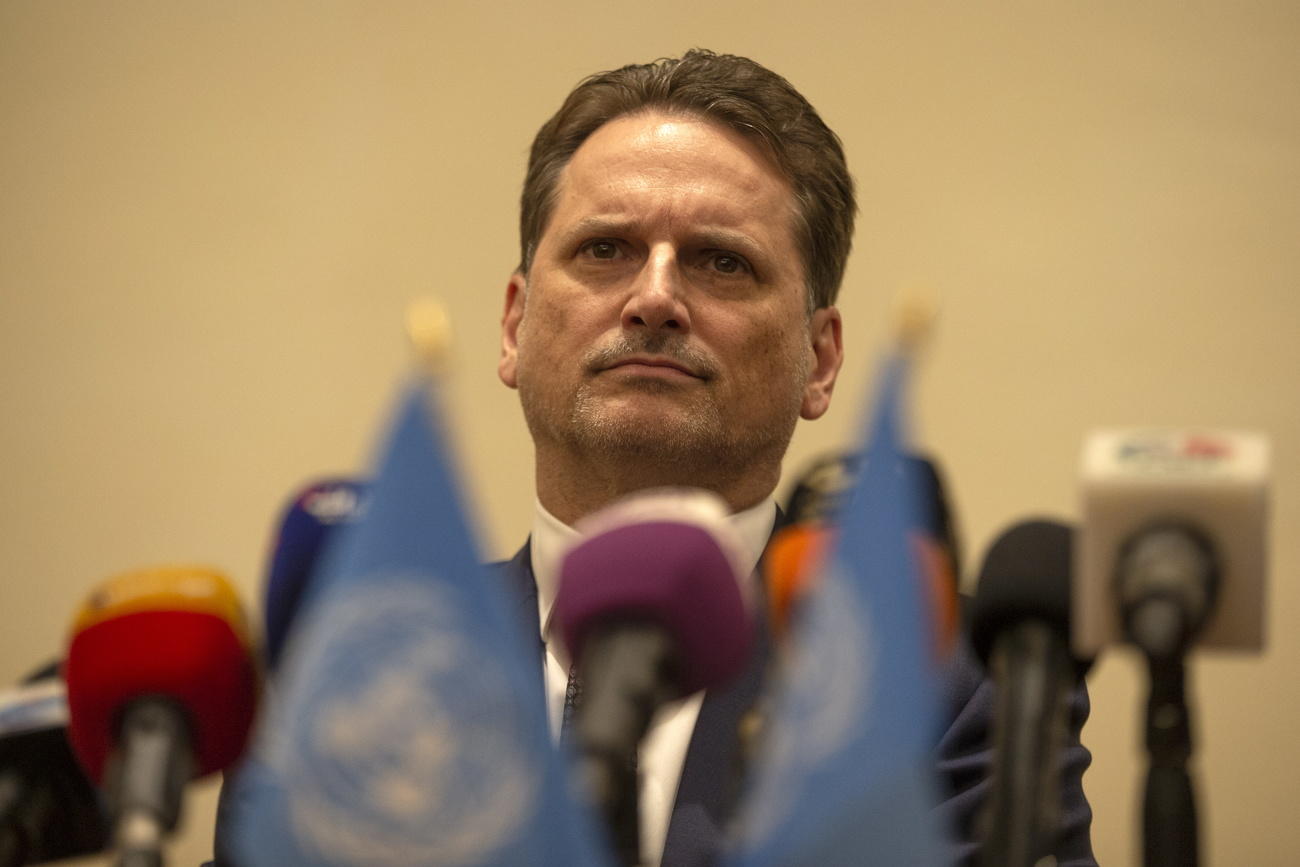
Join the conversation!